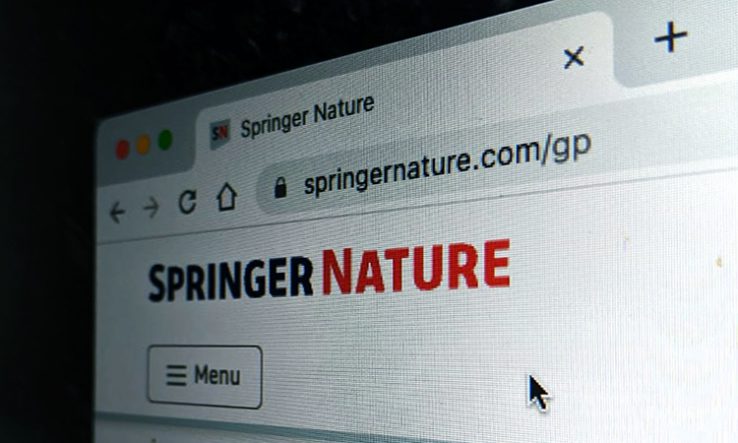
Latest proposal from publisher “does not meet” needs of the sector, say university groups
UK university groups have rejected Springer Nature’s latest offer in ongoing negotiations for access to its journals.
A statement signed by Guild HE, MillionPlus, N8 PVC-Rs, the Russell Group and the University Alliance said the latest proposal—which was received in November and rejected by the team negotiating on behalf of UK universities—does “not meet the needs of the sector and our members”.
“UK universities agreed a clear set of requirements at the start of the negotiations and these must be met before we will support an agreement with Springer Nature,” the statement said.
The requirements include reducing costs, ensuring UK research can be published open access and providing greater transparency on costs and Springer Nature’s transition to open research, the groups said.
Consolidating spending
UK universities had two open-access agreements with Springer Nature via higher education IT firm Jisc, both of which expired on 31 December 2022. Springer Nature is honouring the terms of the expired agreements until further notice, Jisc said.
On top of these agreements, UK institutions spend around €8 million (£7m) on direct subscriptions to journals from Palgrave Macmillan, which is part of Springer Nature, and on article-processing charges for open-access publishing in other titles owned by Springer Nature, according to Jisc.
There are ongoing negotiations to combine the two agreements under one and include the Palgrave titles. Jisc, which is negotiating on behalf of UK universities, said the deal would be one of the largest agreements of its kind.
Despite the rejection of the latest proposal, the university groups said they support the “continuation of negotiations in the hope an appropriate agreement can be reached which will make the transition to open access financially sustainable and equitable”.
Talks ‘futile’
But Stephen Eglen, a computational neuroscience professor at the University of Cambridge, said on 20 February that the negotiations were “futile”.
Eglen said a “detailed critique” of the deal was not possible because of the confidential nature of the negotiations, but that Springer Nature sees gold open access—through which authors or their institutions must pay article processing charges (APCs)—as the “only viable way” to make content freely available.
“If we accept a gold-only view of open access, how can we objectively assess the sustainability of alternative models?” Eglen asked. “A move to a ‘gold only’ open-access world would shift the barrier from reading to publishing content.”
He added that the APC model “introduces as many headaches as it has tried to solve”.
He criticised Springer Nature’s APCs, which he said reach €9,500.
Eglen believes other models for open access are available and “show promise”, such as the subscribe-to-open model in which journals remove a paywall if a threshold number of subscriptions is received.
Research Professional News has asked Springer Nature for comment.
